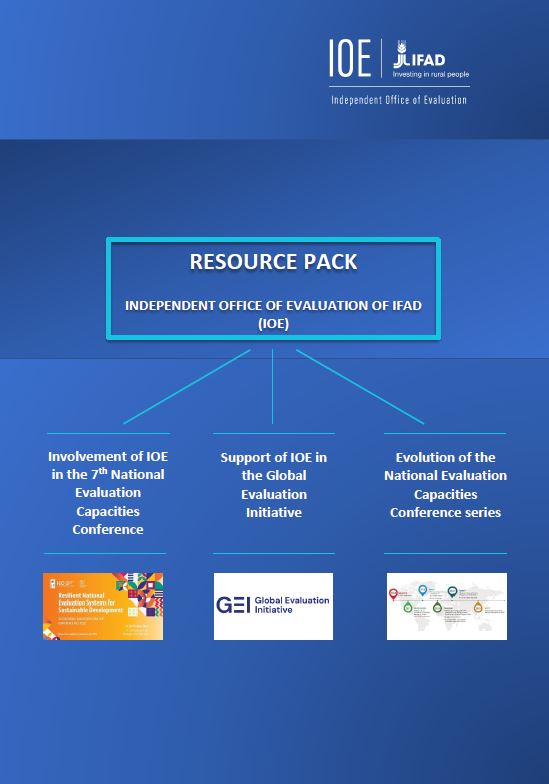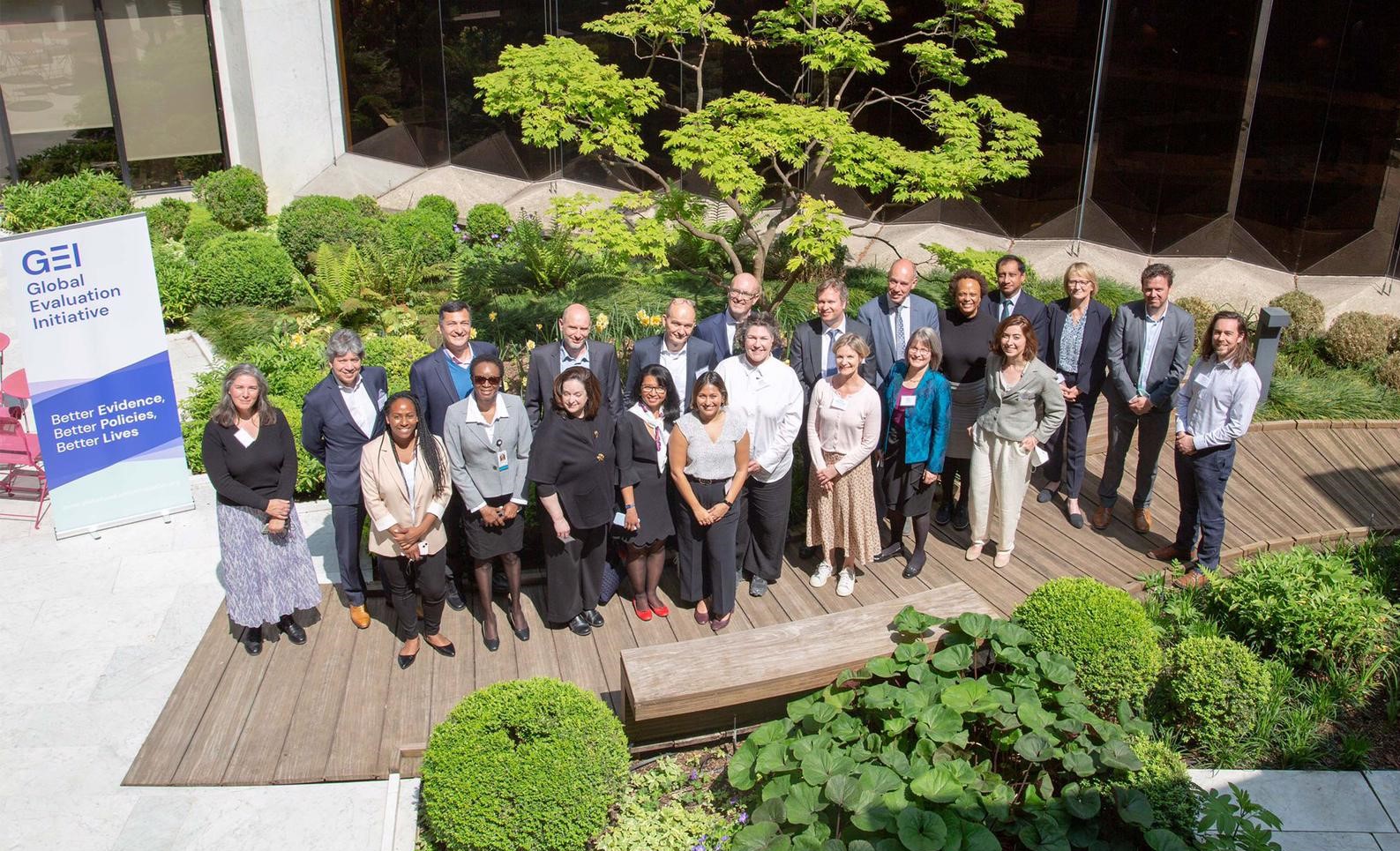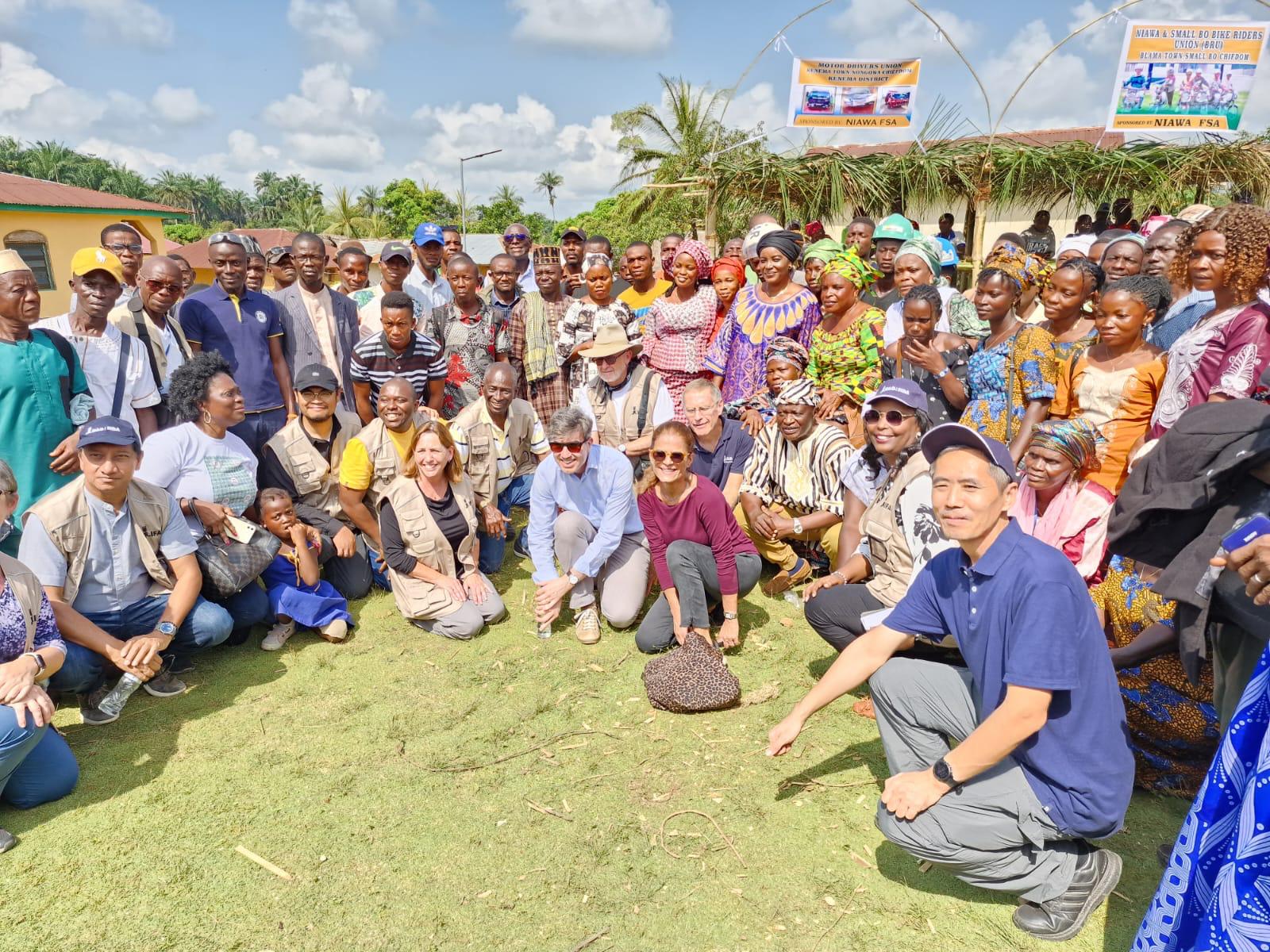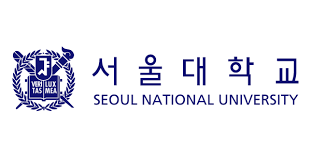Time is ripe for M&E training in the Uzbekistan agricultural sector - IOE
Rome, 7 December 2022 – Strengthening national monitoring and evaluation (M&E) systems is at the core of IFAD’s new country strategy in Uzbekistan. The priority afforded by the government to the agriculture sector, combined with the dynamic institutional set-up of the country, present a fertile ground for partnership and collaboration around national evaluation capacity development. Senior representatives and technical experts from the United Nations Rome-based agencies (RBAs), and the Global Evaluation Initiative (GEI) came together to discuss these and other prospects on 6 December 2022.
“Opportunities exist to create country-specific M&E training for the agricultural sector in Uzbekistan”, affirmed Heather Bryant, GEI Evaluation Advisor.
The Independent Office of Evaluation of IFAD (IOE) hosted the meeting, which featured the participation of the evaluation offices of the Food and Agriculture Organization (FAO) and World Food Programme (WFP) of the United Nations, as well as of members of IFAD’s Near East, North Africa and Europe Division. During the meeting, Dugan Fraser, GEI Programme Manager, and Heather Bryant presented many facets of the work carried out by GEI, including at the strategic and country level. The meeting opened the door for discussions on present and future areas of collaboration, partnership and joint endeavours. These include the possibility of leveraging the GEI platform, institutional network and technical expertise to strengthen M&E capacities in Uzbekistan, in the agricultural sector.
“The GEI is a possible partner to help train trainers in sector-wide M&E in the rural space, in Uzbekistan”, stated Fidy Rajanson, IFAD Country Director for Uzbekistan and Georgia.
Indran A. Naidoo and Fabrizio Felloni, IOE Director and Deputy Director respectively, highlighted the support of IOE in helping to broker connections among country needs that the Office uncovers in its evaluations, such as those in Uzbekistan, and existing initiatives that have the ability to address those needs, such as the GEI.
“In the spirit of the National Evaluation Capacities (NEC) conference series, we want to expand existing M&E initiatives, and support synergies by identifying programmatic linkages”, stated Dr. Naidoo.
This approach resonated with representatives of WFP and FAO, who noted the importance of leveraging existing platforms and using existing resources to complement the GEI, such as the evalforward.org community of practice. These efforts should be geared towards broadening the knowledge about GEI across country offices, in order to provide clear and practical support to work being implemented on-the-ground. Mr. Fraser agreed with this approach, and underscored the rationale for a two-pronged approach to the relationship between RBAs and GEI, focused specifically on building capacities of governments vis-à-vis the agriculture space and small-holder farmers.
“First, there is a need for practical work at the country level, where tangible impact can be shown. Second, knowledge products should be distilled and shared across platforms, also tapping into the resources that evalforward.org provides”, Mr. Fraser said.
The proposed way forward is in line with the modus operandi of the GEI, which currently operates in 24 countries through regional Centers for Learning on Evaluation and Results (CLEAR). The GEI advocates for carrying out analyses of the current status of M&E systems at country level, including in terms of the extent to which what exists is used to inform policy making and programme design. Having come to a common understanding with the government, what follows is the development of a tailored strategy for capacity development at systemic and individual levels.
“We are establishing a database on higher education offerings and a repository of training courses on evaluation that are available through GEI partners. This will be available later this year on GEI’s Better Evaluation platform”, Mr. Fraser explained, in this regard.
The GEI is a global network of organizations and experts supporting developing country governments with strengthening monitoring, evaluation, and the use of evidence in their countries. IOE is an active member and funder of GEI, to which it has provided substantial contributions. The GEI was signed into existence in 2020, when a memorandum of understanding was drawn up between the IEO of UNDP and the IEG of the World Bank.
For further information, please contact Alexander Voccia [here]
RESOURCES
- To access the GEI website, please click here.
- To access the Better Evaluation platform, please click here.
- To access the IOE Resource Pack on evaluation national evaluation capacity development, please click here.
CONTACTS



